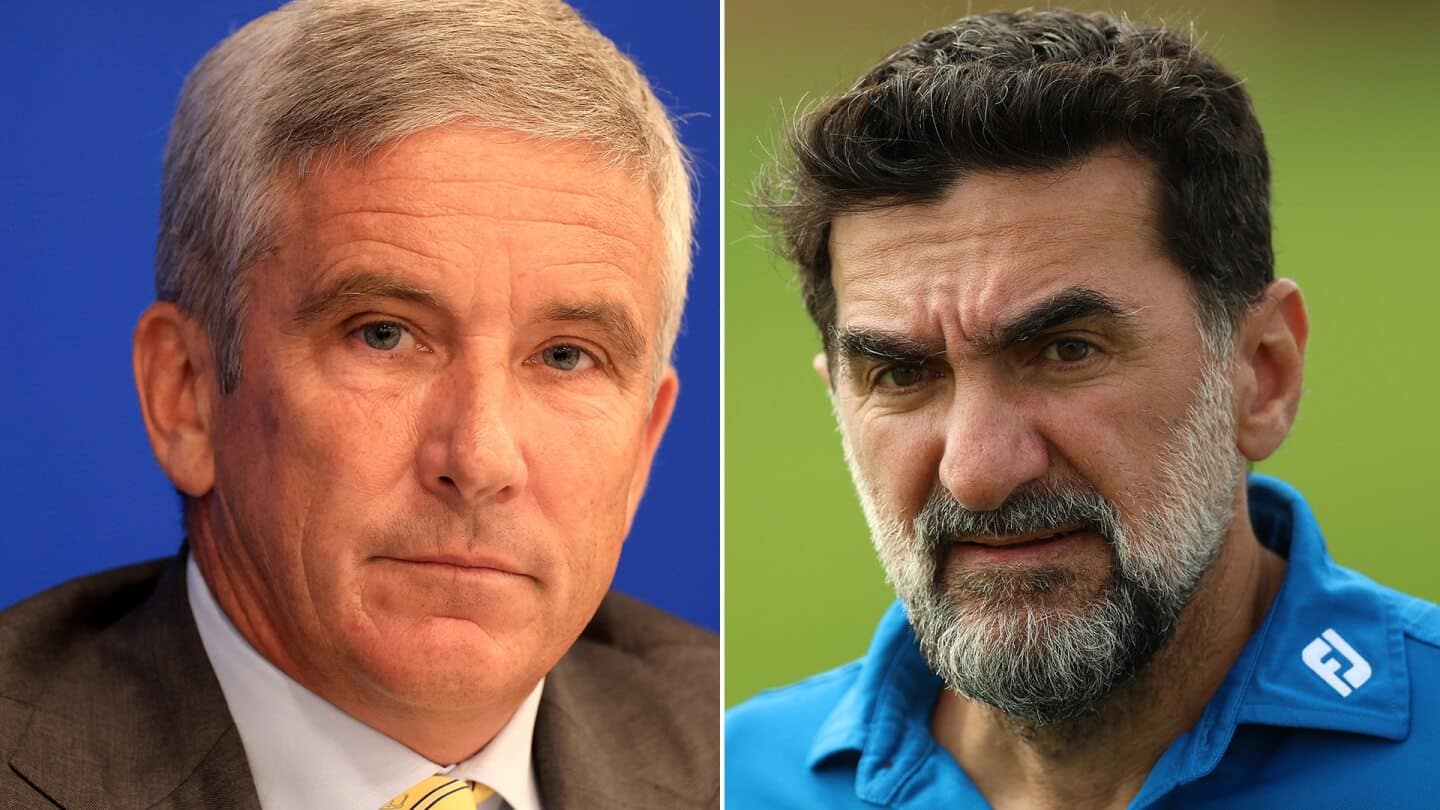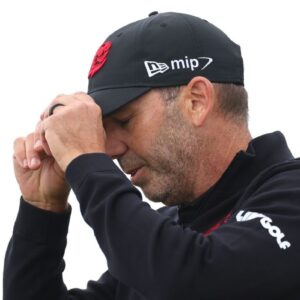With the dew just burning off at Oakdale Golf & Country Club, Maverick McNealy was finishing his practice round at the RBC Canadian Open when he glanced at his phone. “I had like 40 text messages and was like, ‘Wait a second, a deal with PIF? What’s going on here? Do I play for LIV now?'” McNealy recalled.
It was just before 10 a.m. ET on June 6, 2023, when the golf world was hit with the shocking news that the PGA Tour and Saudi Arabia’s Public Investment Fund (PIF) were calling a truce after nearly a year of legal battles and division at the highest levels of the sport. The news was confusing at first, given the muddled messaging that suggested the PGA Tour, DP World Tour, and LIV Golf were merging.
Kevin Streelman described the initial reaction as one of shock and chaos. The confusion only got worse that afternoon when Tour commissioner Jay Monahan faced a room full of unhappy players in an unprecedented meeting. Players were frustrated, questioning why such a significant decision had been made without their knowledge. “This is a players’ tour; this is the first time anyone even on the [Player Advisory Council] has even heard about [the framework agreement],” one player pointed out.
McNealy remembered the tension in the room being palpable. “Jay was surprised at the reception,” he said. The meeting did little to quell the increasing discontent among players. The uncertainty about what the agreement with PIF would mean for them and the Tour’s future lingered.
Ryan Palmer also shared his confusion. “My phone was blowing up,” he said. “Like everyone else, nobody knew what was going on.” A year later, many questions still remain unanswered. “You’re seeing board members resign left and right. In all honesty, as a player, I have no idea. I know they’re doing the right thing. I believe they are. But I’m anxious to see,” Palmer added.
Since that tense player meeting, the situation has only become more complicated. A Department of Justice investigation, a U.S. Senate hearing, and ongoing behind-the-scenes negotiations have all contributed to the uncertainty. Jimmy Dunne, a key figure in brokering the initial framework agreement, recently resigned from the policy board, citing a lack of progress.
Players like Tommy Fleetwood remain uncertain about the implications of the deal. “I’m still not really sure if it’s good or bad,” he admitted. The PGA Tour has created PGA Tour Enterprises, a for-profit entity that will be the circuit’s driving force, and announced a substantial investment led by Fenway Sports. However, a definitive agreement with PIF remains elusive, even after numerous discussions with Yasir Al-Rumayyan, PIF’s governor.
Despite the confusion and stalled negotiations, some players see this period as an opportunity to reinvent professional golf. Rory McIlroy has floated the idea of a world tour with an international schedule, and other players have begun to see potential in the sweeping changes. “Yes, I’m optimistic,” Streelman said. “The latest stuff I’ve heard is incredible. The higher-ups are going to have to make bigger decisions with what we [players] have brought to the forefront, but I think there are some intriguing ideas.”
While the initial shock of the June 6 announcement has faded, it’s been replaced by a mix of anxious uncertainty and cautious optimism. The deal remains in a state of flux, but the potential to revolutionize the sport has some holding out hope.
The golf world remains in a state of flux one year after the surprising Tour-PIF deal was announced. The questions and uncertainties are still there, but so is a cautious sense of optimism about what the future might hold for the sport.
Source: Nbcsports






